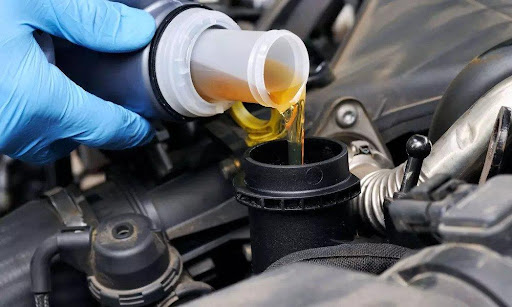
What you need to know about hybrid vehicles and lubricants
Recently, people have become more familiar with hybrid vehicles. Even though most of them don’t know how exactly a hybrid vehicle works, they are aware that these vehicles are better for the environment compared to those that run on internal combustion engines.
It was in 1999 when the first mass production of hybrid vehicles occurred in the US. Though these vehicles still have a long way to go before it replaces non-hybrid vehicles, their benefits cannot be ignored.
How hybrid vehicles work and why they’re efficient
Hybrid vehicles use two different propulsion energy sources. These are electric and internal combustion systems. There is less dependency on fossil fuels because they utilize electricity. Therefore, there are more miles for every gallon of performance and fewer emissions.
An internal combustion engine, a battery pack, and an electric motor are the units used by new hybrid vehicles.
Put simply, hybrid vehicles work with their electric motor and combustion engine. Aside from storing energy, the engine’s battery gets its energy through the internal combustion engine and regenerative braking.
This additional power coming from the motor makes it possible to reduce the engine idling when the car doesn’t work and operate auxiliary loads. Because of these, hybrid vehicles can save you more on fuel without compromising performance.
The importance of using the appropriate hybrid oil
The hybrid engine usually operates at a lower temperature because the electric motor reduces the work from the IC (internal combustion) engine. So, it doesn’t reach the peak operating temperature needed to boil the water that condenses in the engine oil. Hybrid engines typically can’t lubricate the engine parts properly since the oil in hybrid engines works at lower temperatures.
There’s less wear and tear when you utilize the appropriate hybrid oil when getting an oil change for your vehicle. It also extends your engine’s lifespan and lessens sludge formation.
Engine oil or regular Oil: What to use for your hybrid vehicles
There’s a tiny difference between an engine and regular oil. Though the IC engines in hybrid vehicles have traditional combustion engines, you can use regular oils.
Manufacturers give the same specs for regular and hybrid oil. So, most oils that are approved for vehicles with IC engines are also good for hybrid vehicles. But there’s a small difference that can be significant as time passes by.
The combustion engines of hybrid cars don’t operate 24/7 since the electric motor provides a large amount of power and the temperature of the IC engine to work is often lower compared to traditional vehicles. There can be a lot of engine cold starts when the IC to the electric motor switches constantly. This is the primary reason why it’s best to utilize hybrid oils when doing oil changes.
The ideal time to perform an oil change for hybrid vehicles
Similar to traditional vehicles that utilize internal combustion engines, hybrid vehicles need consistent and regular hybrid oil changes. But the oil change isn’t as frequent as the oil change with vehicles that have IC engines. This is truer when you drive your hybrid vehicle at a low speed in your area.
Hybrid vehicles don’t put much pressure on the IC engines when moving at lower speeds. The electric engine is the one that does most of the heavy lifting. When the hybrid vehicle moves at higher speeds, this is the time the IC engine is at full power.
But it’s still best to change the hybrid oil as per the owner’s manual. This is the same as traditional vehicles. This is to ensure the good health of your hybrid car’s engine.
Conclusion
Finally, you understand the option you have for hybrid car lubricants. Hybrid vehicles have gained more and more attention in the past years.
Since there’s a difference in the engine between conventional and hybrid vehicles, there’s also a difference in the lubricants used. It’s important to understand these since it affects the performance and other characteristics of your vehicle.



